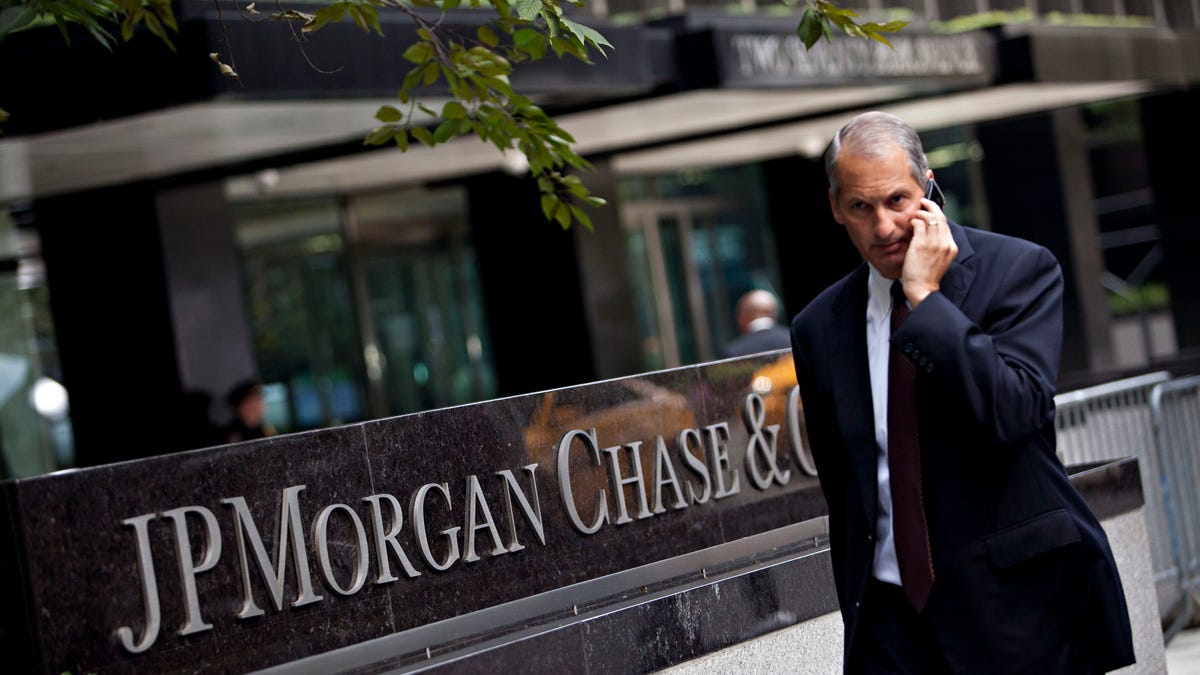
Anti-bribery watchdogs are scrutinizing JPMorgan Chase's hirings of the children of Chinese ministry officials. (Reuters)
Federal authorities have reportedly opened an inquiry into whether JPMorgan Chase hired the children of key Chinese officials in positions that may have helped to steer business the bank’s way.
The New York Times reports it reviewed a confidential U.S. government document purporting JPMorgan Chase hired the son of the China Everbright Group, a state-controlled financial conglomerate that then hired the bank for myriad services, including investment banking advice concerning a stock offering by one of its subsidiaries.
The document also references JPMorgan Chase’s decision to hire the daughter of the former deputy chief engineer of China’s railway ministry through its Hong Kong office around the same time in 2007 as the bank was awarded a contract to take China Railway Group, a construction company with state ties, public.
The investigation is merely a civil matter, according to The Times, which reported that, of late, the U.S. Securities and Exchange commission has ramped up enforcement of the Foreign Corrupt Practices Act, which bans U.S. companies from lending “anything of value” to a foreign official in order to win or retain business.
[pullquote]
Whether or not hiring key officials’ children represents a “bribe,” per se, is murky, according to legal experts interviewed by The Times.
“While the hire of a son or daughter itself is not illegal, red flags would be raised if the person hired was not qualified for the position, or, for example, if a firm never received business before and then lo and behold, the hire brought in business,” Michael Koehler, an expert on the corrupt practices act who is an assistant professor at the Southern Illinois University School of Law, told The Times.
Specifically, the SEC is seemingly probing JPMorgan Chase’s hiring of Tang Xiaoning -- the son of Tang Shuangning, who since 2007 has served as chairman of the China Everbright Group, according to The Times.
It is also investigating the bank’s hiring of Zhang Xixi, the daughter of a railway official later accused of doling out government contracts in exchange for cash bribes, according to the government document, as well as public record, reviewed by the newspaper.
JPMorgan Chase, for its part, reportedly directed The Times to a throwaway line in its latest financial filing with the SEC that stated the government watchdog agency had requested information about the bank’s, “employment of certain former employees in Hong Kong and its business relationship with certain clients.”
A JPMorgan spokesman told The Times, “We publicly disclosed this matter in our 10-Q filing last week, and are fully cooperating with regulators.”
In the case of China Everbright, JPMorgan Chase “appeared to do little if any business,” with the company before hiring Tang Xianoning, according to The Times. Since then, however, the state-run financial conglomerate has become one of the bank’s, as the newspaper put it, “prized Asian clients,” inking a host of deals with it.
The SEC inquiry represents only the latest scandal for JPMorgan Chase, which saw federal authorities levy criminal charges this week against a pair of its former traders in connection with an alleged attempt to spuriously understate the scope of what, in the end, turned out to be a $6 billion trading loss known as the “London Whale.”

